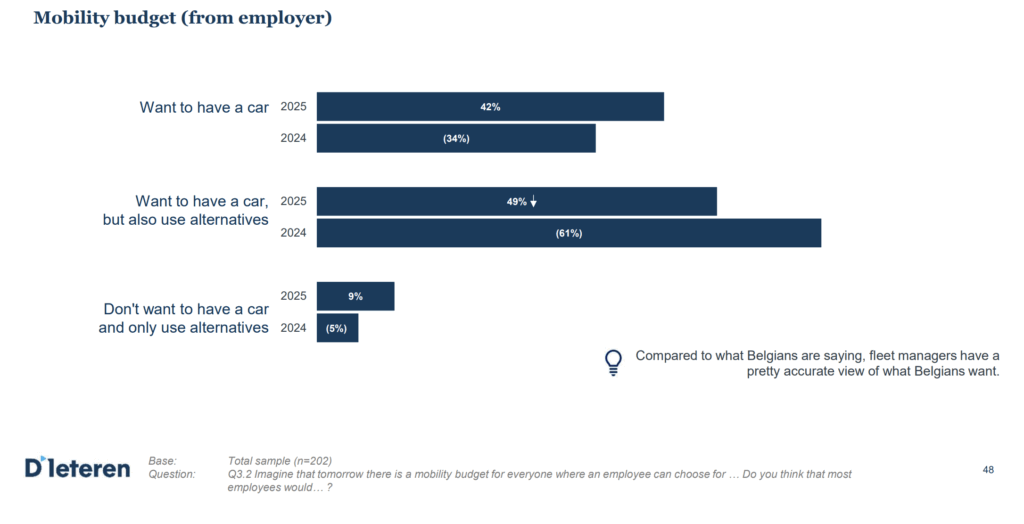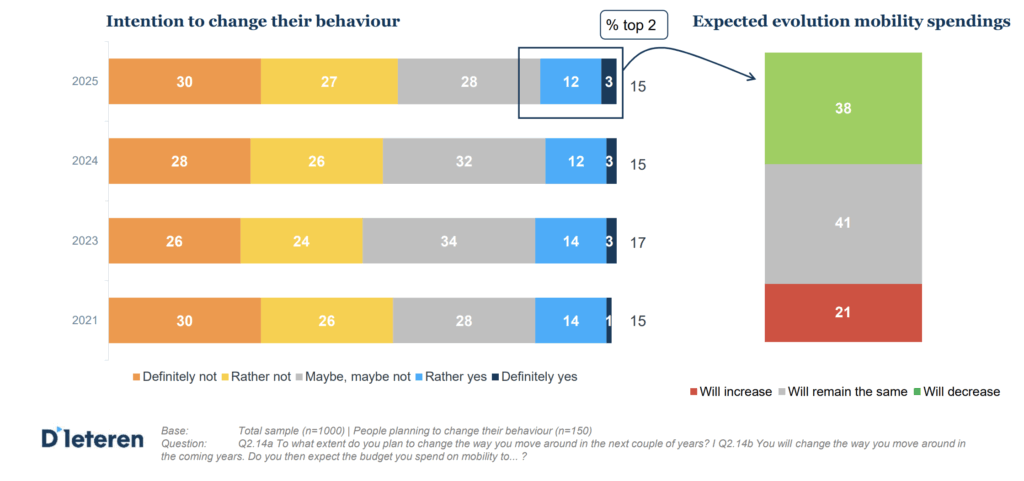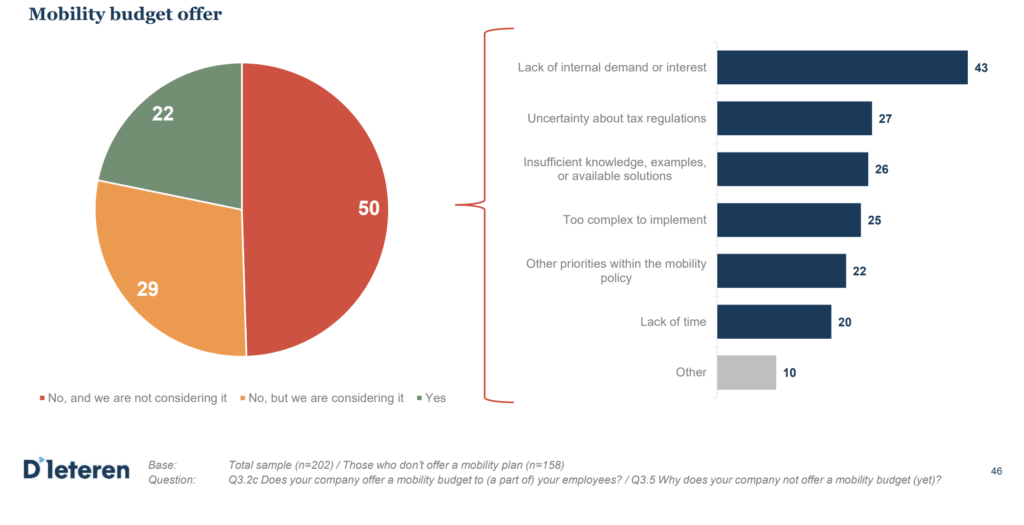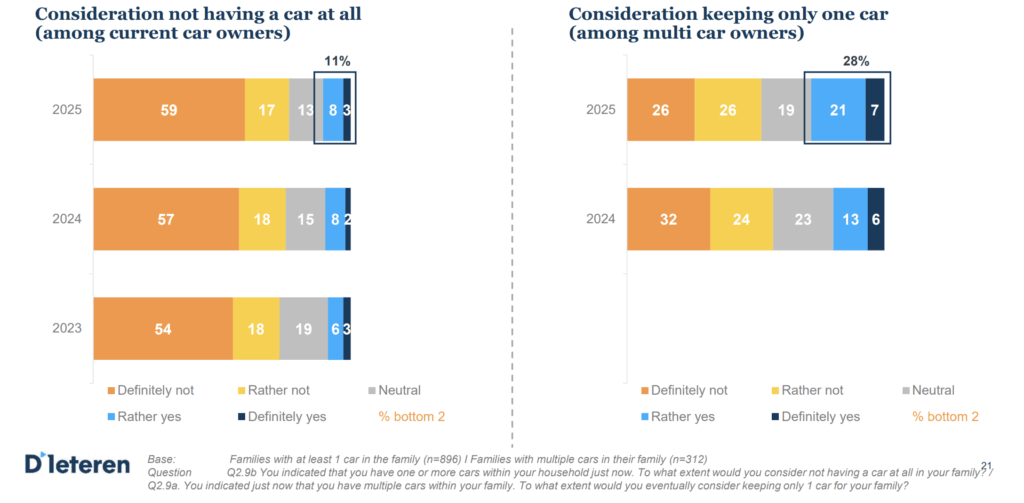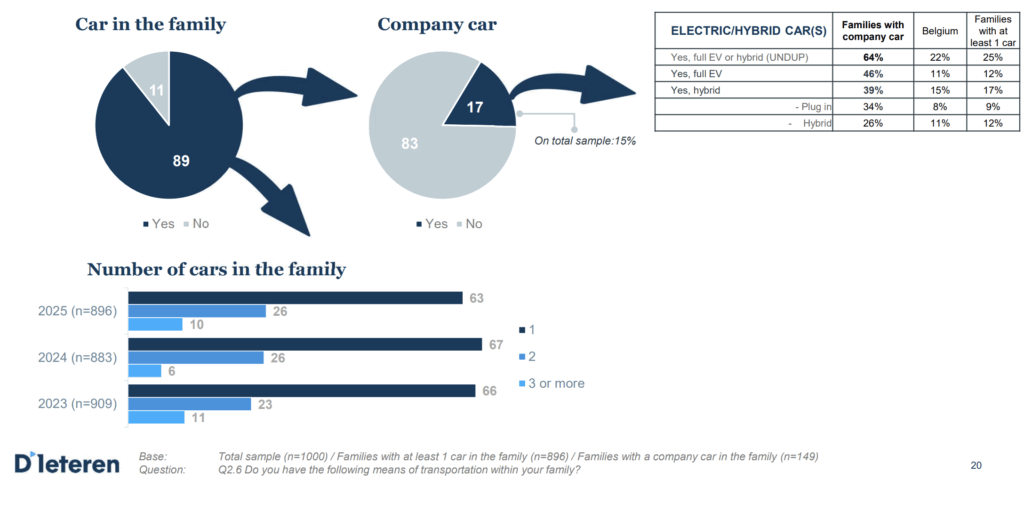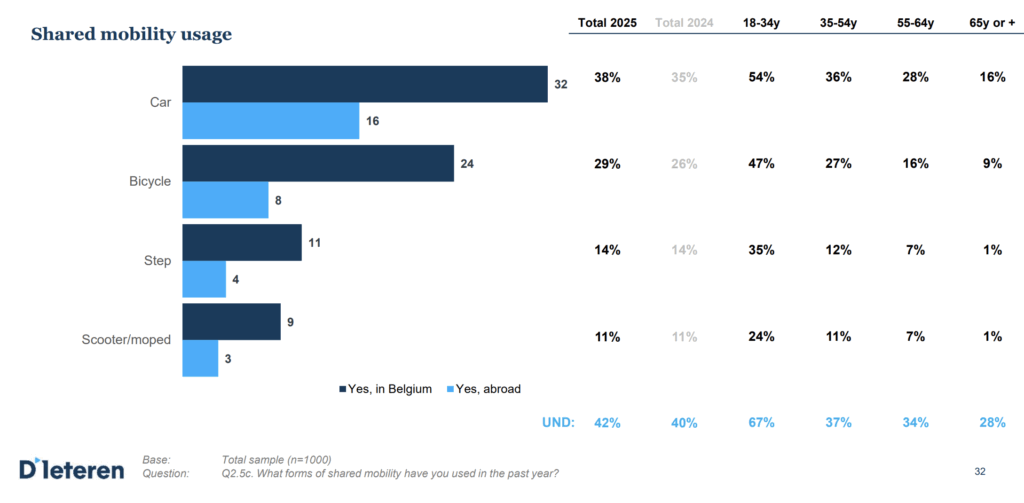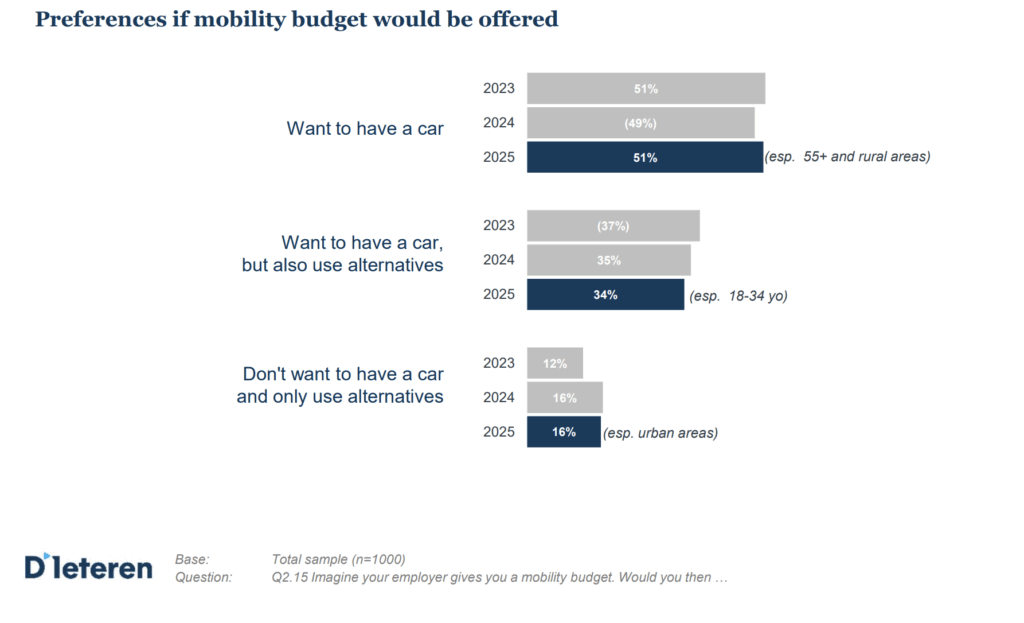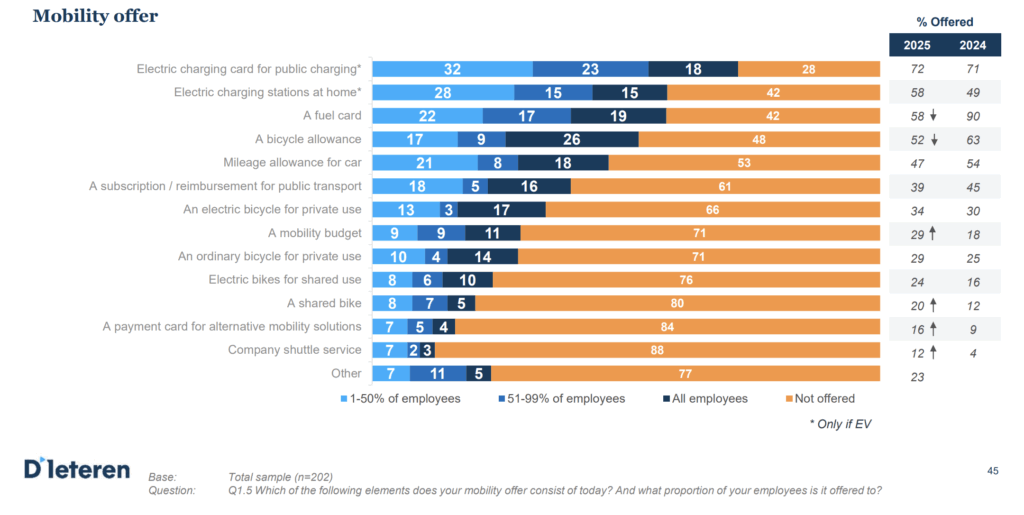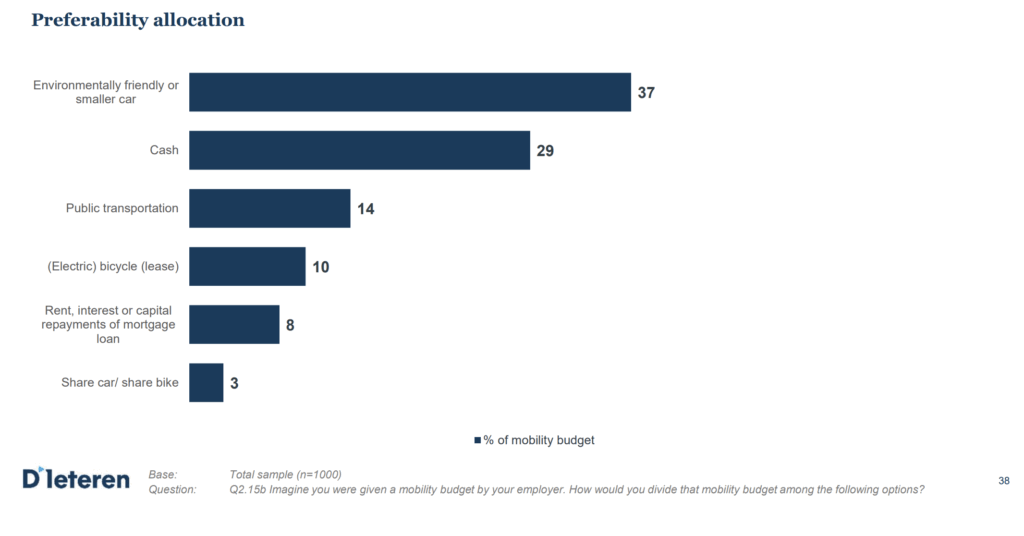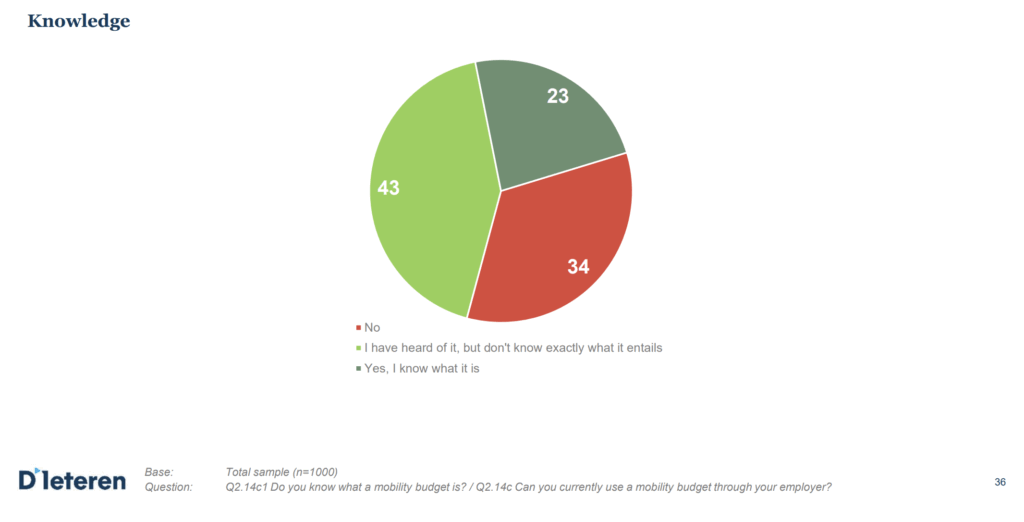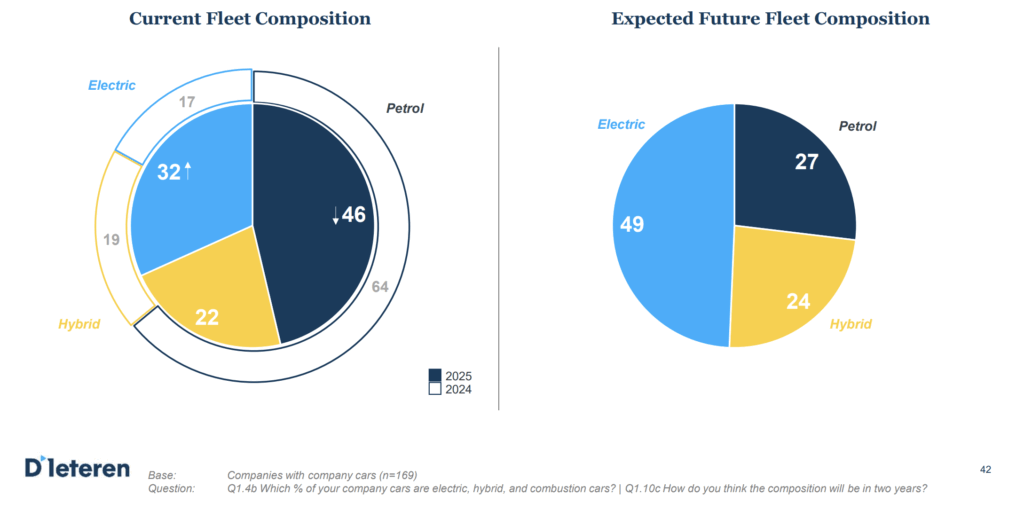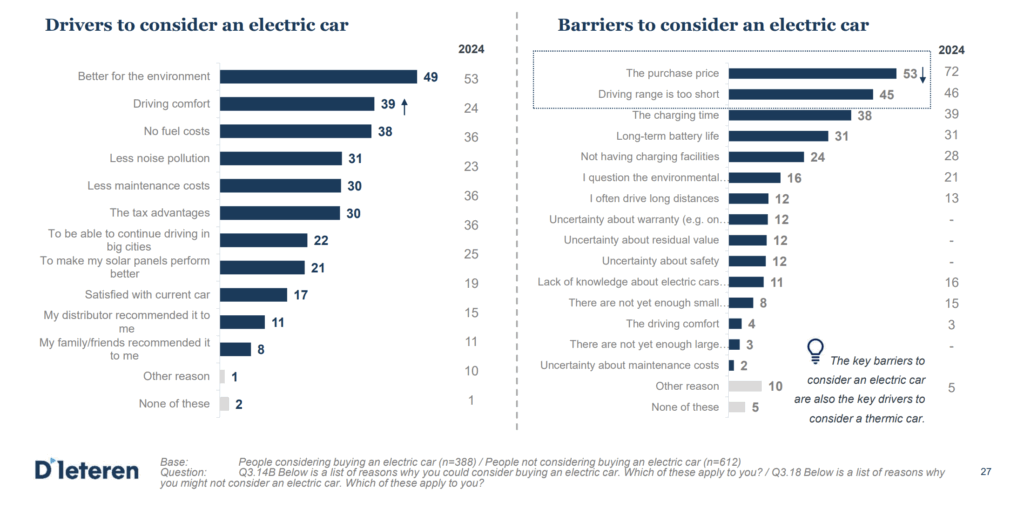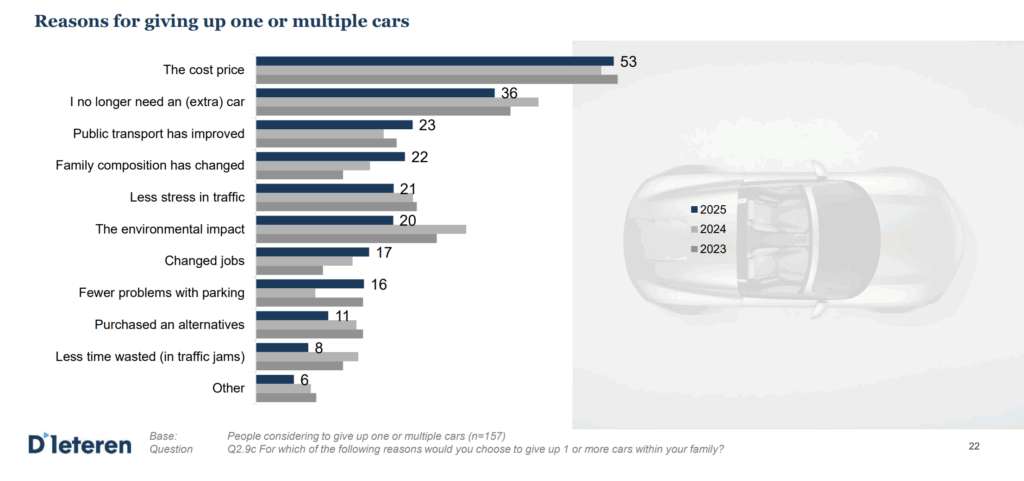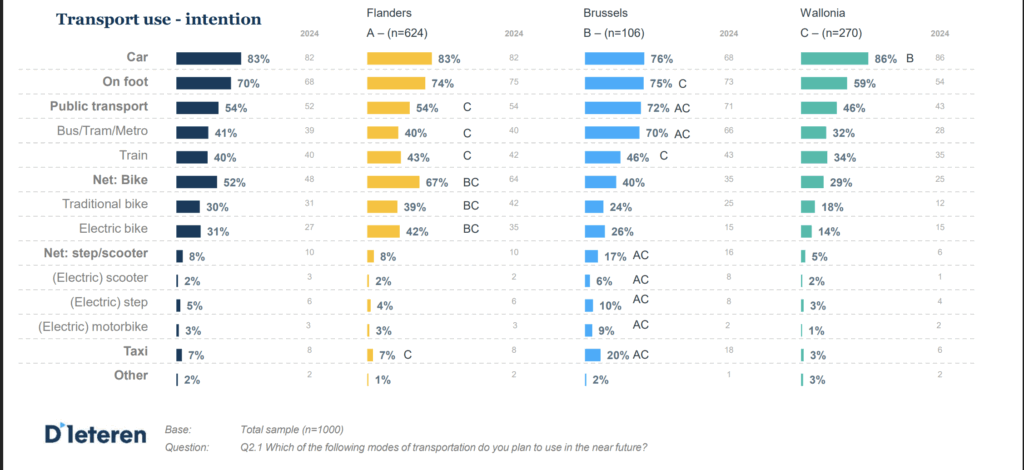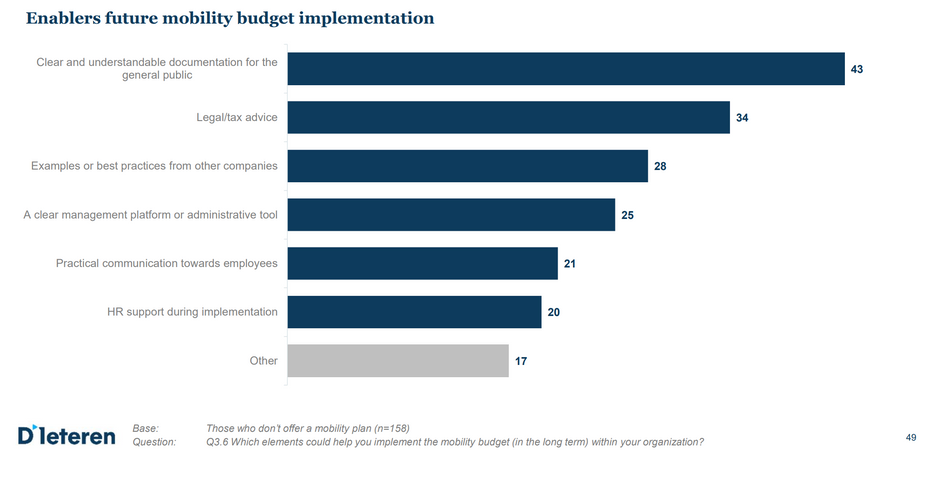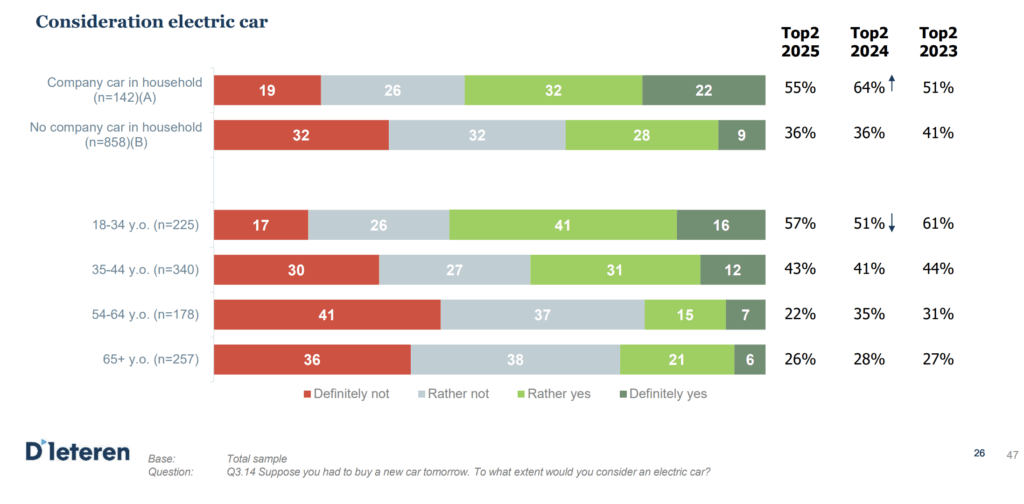The Polaris Study 2025, conducted by D’Ieteren Automotive with research agency Profacts, offers a deep dive into the evolving Belgian mobility landscape. While the car still dominates daily life, the study highlights accelerating trends in fleet electrification, mobility budgets, and bike leasing — all highly relevant for corporate mobility policies.

Key Takeaways for Fleet & Mobility Managers
1. Electrification is Accelerating
- 32% of company fleets are now fully electric, up from 17% in 2024.
- Flanders leads the way, with 36% of fleet cars already EVs.
- Companies expect EVs to reach ~50% of fleets within two years.
- Petrol vehicles are declining sharply, hybrids remain stable.
Implication: Fleet managers need to anticipate charging infrastructure needs and adapt TCO models quickly, as electrification becomes mainstream.
2. Charging Infrastructure & Home Charging
- 58% of companies with EVs also offer home charging solutions, stable vs 2024.
- Employees still expect charging points within 1 km of their home.
- Public chargers alone are not convincing enough to accelerate EV adoption.
Implication: Offering home charging support (financial or practical) is becoming a key driver of EV acceptance.
3. Mobility Budgets: Awareness vs. Adoption
- Awareness is high: 2/3 of Belgians know the concept, but only 5% use it.
- On the corporate side, 50% of companies are not considering a mobility budget yet, citing lack of employee interest.
- Still, fleet managers remain positive about the concept, expecting adoption to grow with clearer tax/legal frameworks and better communication.
Implication: Mobility budgets remain underused, most of the time due to lack of information and knowledges.
4. Bike Leasing Gains Ground
- 41% of companies offer bike leasing in 2025 (vs 36% in 2024).
- Electric bikes dominate the leasing offer, reflecting demand from employees.
Implication: Bike leasing is a quick win for companies to diversify mobility offers and respond to employee interest.
5. Employees Still Value Cars — but Flexibility Matters
- In mobility budget scenarios, 37% of the budget is allocated to cars, followed by 29% to cash.
- Younger employees show stronger interest in bikes and shared mobility.
- Fleet managers rightly expect that most employees will still choose a car, but with growing openness to combining it with alternatives.
Implication: Flexibility, not a one-size-fits-all policy, is the future of mobility offers.
Conclusion
The Polaris 2025 study confirms that Belgium is in a transition phase:
- Fleet electrification is no longer optional, it’s accelerating rapidly.
- Home charging and infrastructure planning are critical enablers.
- Mobility budgets and bike leasing are underused levers that can boost sustainable mobility strategies.
For fleet and mobility managers, the challenge is to combine electrification with diversified offers that balance employee preferences, operational needs, and regulatory compliance.
